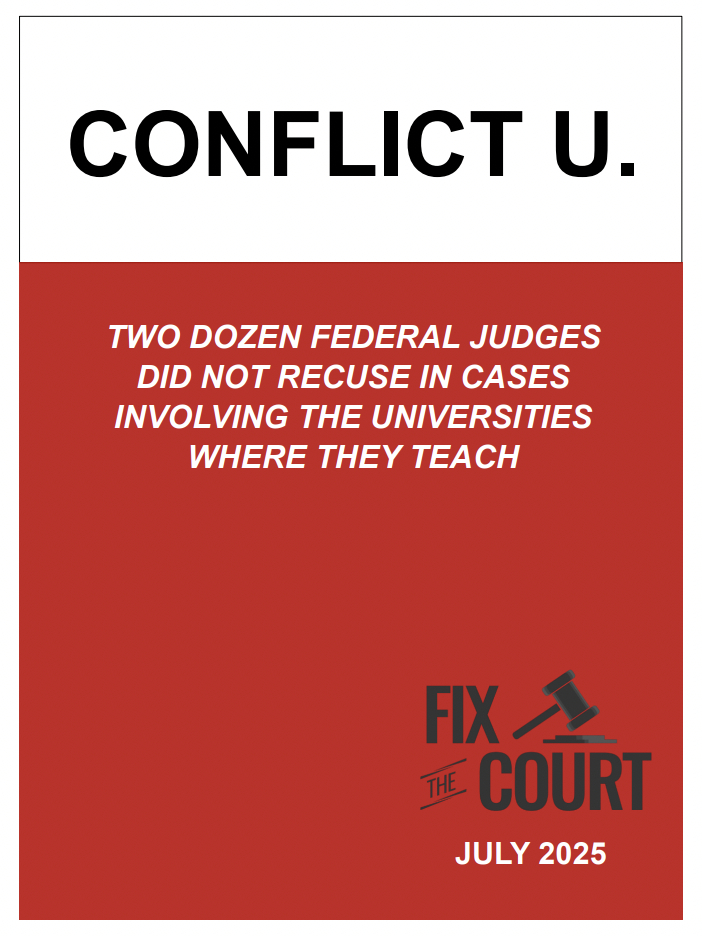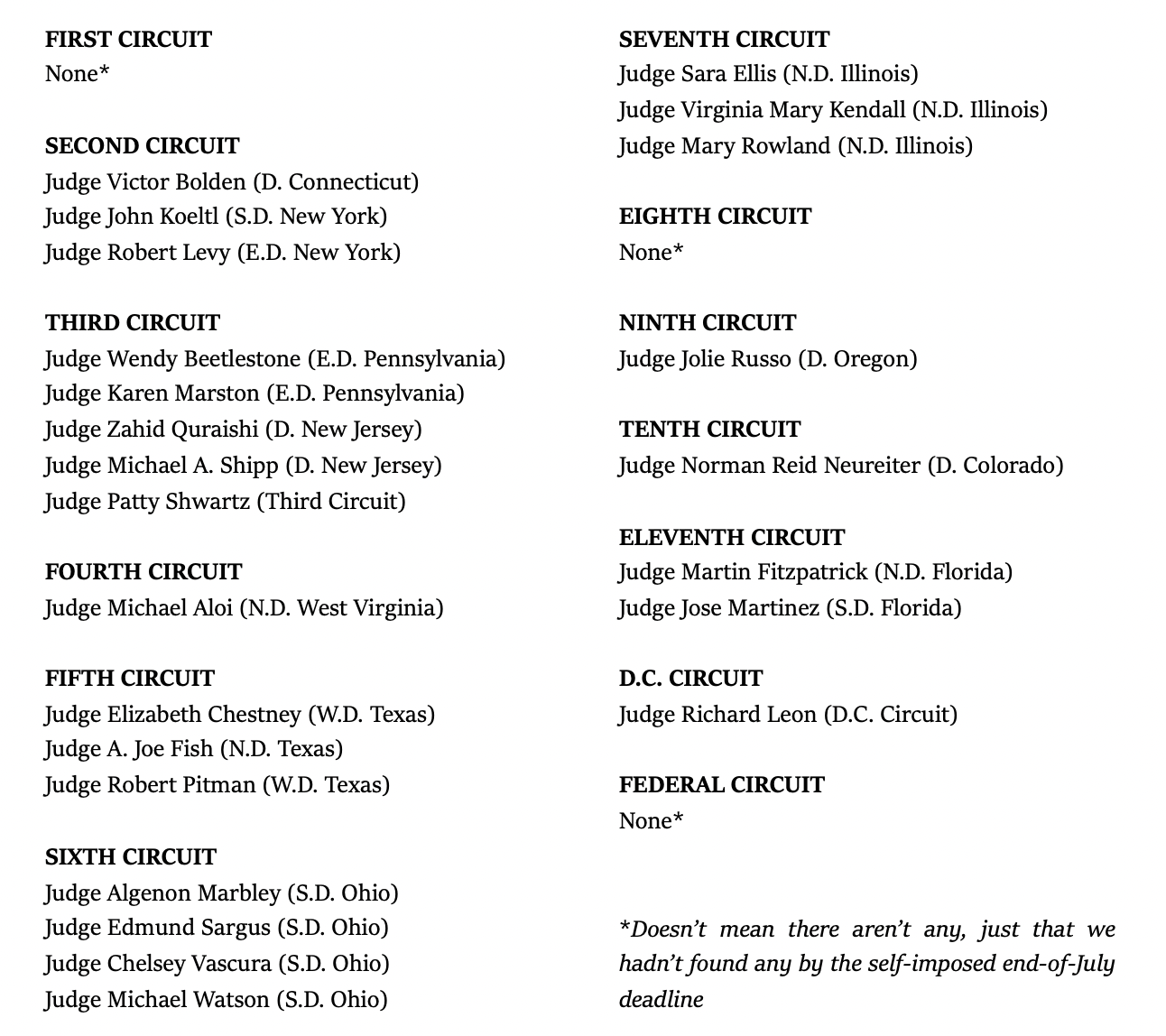Conflict U.: Two Dozen Federal Judges Did Not Recuse in Cases Involving the Universities Where They Teach
 As an appeals court judge, Amy Coney Barrett included both the University of Notre Dame and Notre Dame Law School on her recusal list. That meant if the Seventh Circuit’s case-assigning software was about to assign her a case in which either was a party, the software would instead skip her. Conflict avoided.
As an appeals court judge, Amy Coney Barrett included both the University of Notre Dame and Notre Dame Law School on her recusal list. That meant if the Seventh Circuit’s case-assigning software was about to assign her a case in which either was a party, the software would instead skip her. Conflict avoided.
It sounds simple, but it appears that Barrett is an outlier. According to a new report — “Conflict U.” — released today by Fix the Court, two dozen federal judges who teach at law schools have recently participated in cases involving those schools’ parent universities.
What’s worse, the judiciary has blessed this conflict-ridden protocol. Multiple circuits (p. 12) and Judicial Conference policy (p. 11) have said, in effect — and unconvincingly, as laid out in the report— that just because a judge teaches in one part of a university doesn’t mean they’d be biased in favor of the entire university when it’s a party in a case a judge-adjunct is presiding over. To us, that belies an obvious “appearance of impropriety” issue.
“This has conflict written all over it,” Fix the Court’s Gabe Roth said. “If you teach at a law school, and especially if the law school is paying you, you shouldn’t be sitting on cases involving the university that the law school is a part of. Even if a judge-adjunct professes, as several have, that the law school at which they teach is but ‘one small and virtually autonomous part’ of the university, a neutral observer who sees ‘OSU Law’ on a judge’s disclosure would be correct in imputing bias any time that judge presides over a case involving Ohio State University.”
“Judges’ unwillingness to recuse in these cases does the third branch no favors, especially at a time when the public’s faith in the judiciary and its ethics practices is at or near an all-time low,” Roth added.
Ironically, lower court judges who teach at law schools should look to the ethics example set by the Supreme Court. In May, four book-writing justices recused in a Bertelsmann petition since they’re being paid by a Bertelsmann subsidiary, Penguin Random House. (A law school is a university’s subsidiary in many ways.) The following week, Justice Alito recused in a petition involving a copper mine that’s co-owned by a company, BHP, whose shares he owns, even though BHP wasn’t named as a party in the case.
What’s more, there’s the Justice Barrett example noted above, and former Tenth Circuit Judge Neil Gorsuch recused in several University of Colorado petitions while he was teaching at UC Law, though it’s not 100 percent clear if those recusals were related to his adjunct work (more likely) versus the fact that he owned a university bond for a time (possible).
Solutions
Though the report highlights 24 judges — 22 from district courts and two from circuit courts — it’s likely that the problem is prevalent throughout the judiciary, given how often lower court judges are employed by their local law school. Again, case law aside, the obvious appearance of impropriety problem calls out for at least a modest solution. Here’s an idea:
Under judiciary policy, chief judges must approve the teaching jobs of their judicial colleagues ahead of a judge’s start date. That approval, under the Guide to Judiciary Policy, §1020.35(d)(2) (p. 8), must include an acknowledgement from the judge-adjunct that his or her side gig is ethical.
Fix the Court hopes that when a chief judge signs an approval, he or she will work with the judge-adjunct to ensure that both the law school and the parent university are added to a judge’s recusal list. These lists are supposed to be updated twice a year, per the Guide to Judiciary Policy, §410 (p. 5).
Another idea: more parties suing universities should file motions to recuse if they draw a judge-adjunct.
Finally, if you’re interested in how we found the judges, or how we’ll look for more, please email Gabe@FixTheCourt.com.
Judges in our report by appointing president
Reagan: 1
Clinton: 3
Bush: 4
Obama: 6
Trump: 2
Biden: 1
Magistrates (not presidentially appointed): 7
Conflicted judges by geography
